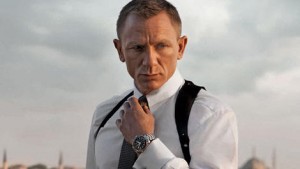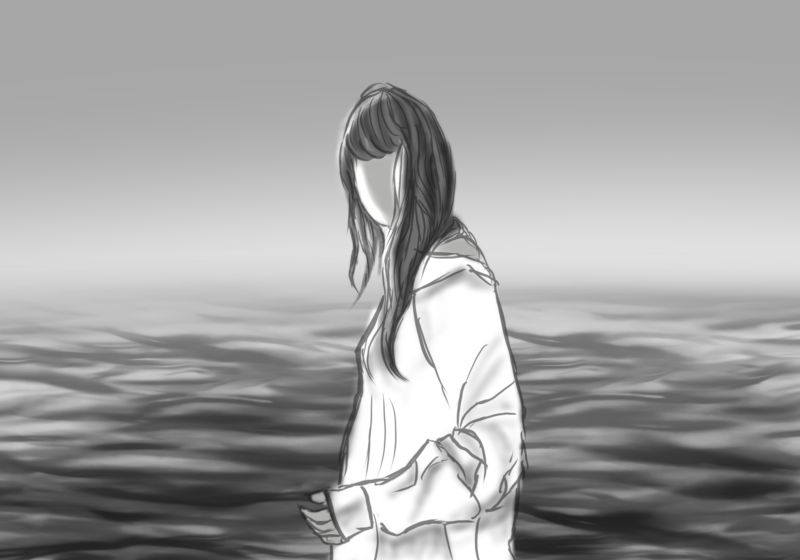The greatest challenge facing our favorite British spy is neither a tough-minded femme fatale nor a seedy, seditious villain played by Javier Bardem. This time around, Bond confronts a nemesis that afflicts us all. He’s growing old.
Up until this point, the general trend across Bond movies has been the perpetual rejuvenation of the title character. Compare the older 007s — Sean Connery and Roger Moore — with the more recent manifestations by Pierce Brosnan and Daniel Craig. As each actor replaced the last, the wrinkles started to fade and youthful vigor began to enter the picture more and more. Craig’s entrance in 2006’s “Casino Royale” could have been the second coming of Adonis — who knew that beneath Bond’s martini-dusted two-piece suit is chiseled musculature to shame the lithest action movie heroes?
In “Skyfall,” directed by Sam Mendes, Bond is swift and capable, but his movements are less sure and his aim less steady. After a series of exercises, he collapses on the ground, exhausted. Though we’ve seen physically older Bonds, this is the first time we’ve seen 007 in the process of aging; many back-and-forths occur between Bond and M about its inconveniences. By upsetting Bond’s eternal youth, “Skyfall” both wryly inverts the character’s iconic image and furnishes him with a human vulnerability. Craig carries this role with seeming ease, exuding an amalgam of charm, intensity and collected turmoil. He brings a presence and latent richness to Bond that elevates the character beyond the surface suave that defined earlier rendition of 007.
But Bond’s not the only one packing on the years. The 007 franchise has been around for over half a century, burying itself so deeply into pop culture that the two of them have become virtually inseparable. Nostalgic appeal can achieve only so much, though. “Casino Royale” injected new life into the series, and “Skyfall” continues the job magnificently. Despite the occasional plot and stylistic foible, Bond-23 revitalizes the series to its grand, globetrotting best via ravishing visuals, skillful dialogue and a strong backbone of peripheral characters.
“Skyfall’s” narrative delineates a world that should be familiar to anyone who has ever seen a Bond movie or any of the multiple genre derivations that have been released since the original 007 left its mark on the mainstream public. Terrorists, encrypted hard drives and high-tech international espionage provide a stylized, simplified riff on reality. That “Skyfall” engages this hackneyed genre with gravity and intelligence ennobles the movie’s plot, which by itself lacks major oomph.
The story begins with a list that contains the identities of every field operative working for MI6, a list that would be detrimental to the agency if released. It had already been stolen when “Skyfall” opens, and it is Bond’s task to retrieve it. After a botched job leaves him presumed dead, he returns to discover a greater plan to bring destruction on M and MI6. To protect both M and the agency’s infrastructure, Bond must once more pursue the list to see whether it will provide him with a trail to the answers.
This trail leads Bond to an astonishing array of international locales in the travelogue tradition of many spy films, but rarely are locations in those movies shot as beautifully as they are here. A blue-washed England conveys the cynicism of the era and infuses a Cold War feel into the movie’s atmosphere. Nighttime Macao is alight with dragon kites and gossamer lanterns, while the mountainous, cloudy back country of Bond’s childhood home has an austere majesty.
But it is Shanghai that steals the show. With gleaming high rises and swirling highways, the entire city seems to pulsate on a neon wavelength. It’s as if someone unfurled the entire color spectrum and built a teeming, seething metropolis on its iridescent foundations. One of the movie’s most striking scenes takes place in a darkened, upper-story floor filled with glass panes. As Bond stalks a rogue sniper across the floor, the panes reflect and refract the city’s many glowing signs and advertisements, creating a vast, undulating kaleidoscope of light and shadow. In this wordless sequence, we forget for a few minutes about the story, entranced by the sublimity of the images.
Once we return to the plot, however, we are met with another marvel. Though by no means immaculate, “Skyfall’s” script clips and quips with the cadence of wit. It possesses a wonderful sense of comic timing, interweaving humorous bits into the fabric of the movie’s many serious conversations. In particular, Ben Winshaw’s Q is an intellectually debonair delight, rattling off salvos of zingers while looking like a younger, spunkier version of Cillian Murphy. Bond and M never lack for moments together either, establishing the close rapport between these two veterans of the spy game.
Of course, “Skyfall” delivers the obligatory kiss kiss bang bang of a bona fide Bond movie, and liberally too. Major gunplay ensues at Bond’s childhood mansion in the movie’s climactic sequence, a Western-style standoff that switches out Bond’s modern weapons for hunting rifles and shotguns. The film’s movement from modernity to antiquity in this scene both shows Bond embracing a past era and presents us with an unexpected bit of genre novelty. The scene illustrates “Skyfall’s” balance of tradition and innovation, jolting a waning series back to life without failing to pay tribute to the passage of time. Bond is getting old, yes. But “Skyfall” dispels worry because, as Bond himself says, “[It’s a] brave new world.”
Jeng is a member of the class of 2016.






